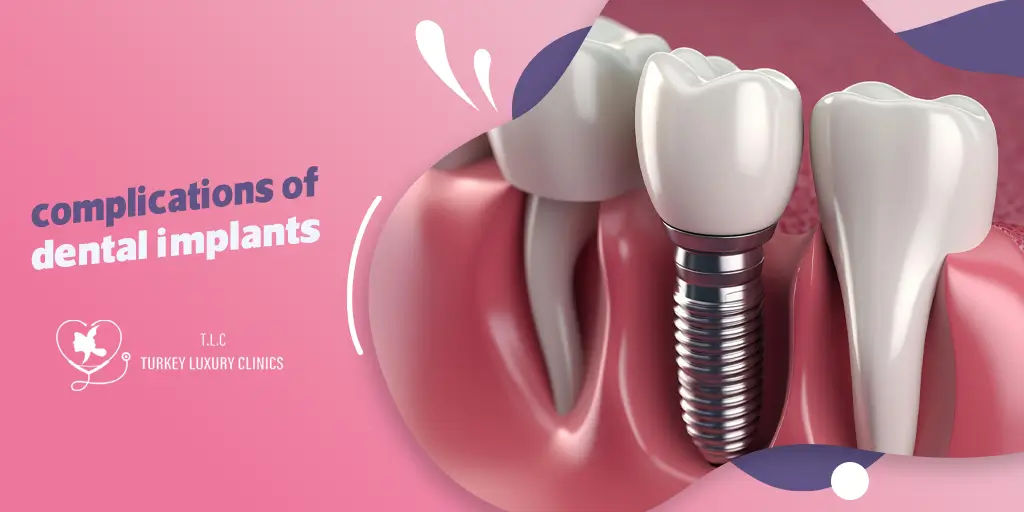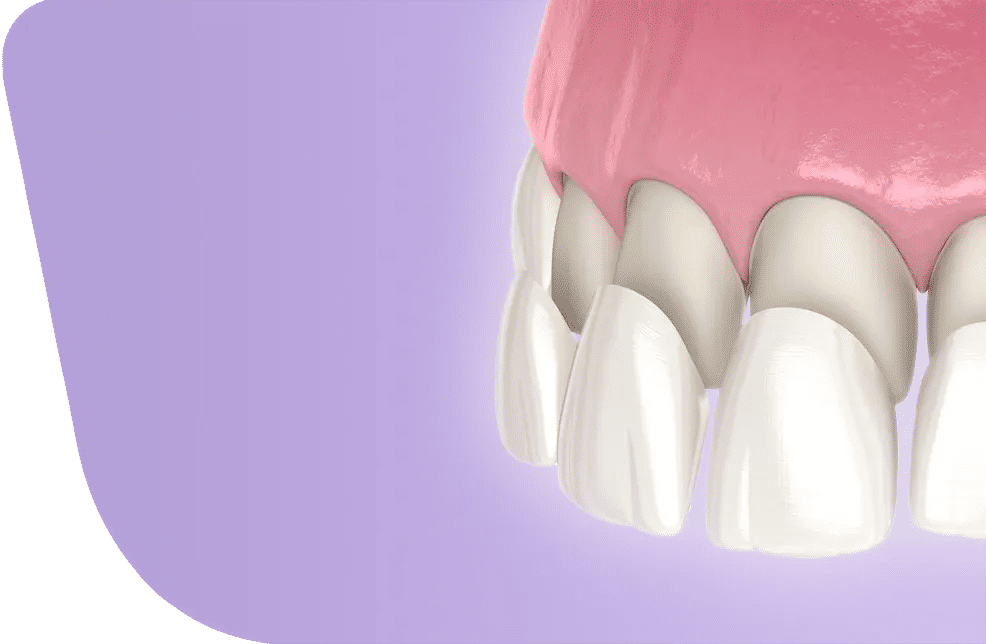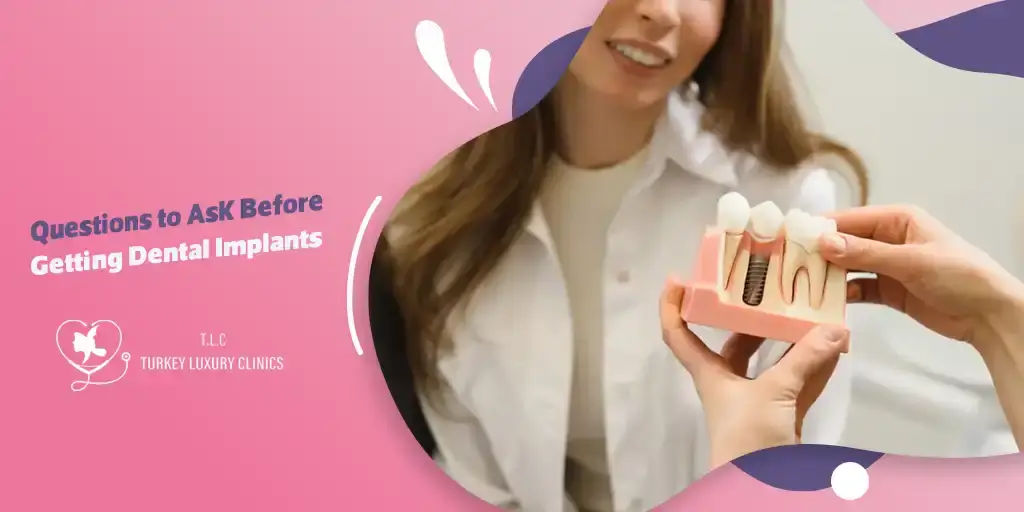- - Complications of Dental Implants
- - Minimizing Risks and Complications
- - The Bottom Line
- - Request an Appointment with Us
Dental implants offer the ideal solution for replacing missing teeth. Not only are they stronger and more durable than removable teeth, but they also provide greater comfort. It's worth noting, however, that receiving dental implants involves a series of procedures and carries a minimal risk of complications. So, while the process may require some time and caution, the outcome is undeniably beneficial for those seeking a reliable and long-lasting tooth replacement option.
Complications of Dental Implants
Peri-Implantitis
- Definition: Peri-implantitis is a condition where the gum tissue and bone surrounding a dental implant become inflamed and infected.
- Causes: This can be caused by poor oral hygiene, which allows bacteria to accumulate around the implant, or by the implant being placed in an area with insufficient bone volume.
- Symptoms: Symptoms can include redness, swelling, and bleeding of the gums around the implant, as well as pain and bad breath.
- Treatment: Early detection is key. Treatment may include antibiotics, deep cleaning (scaling and root planing), and in severe cases, surgical intervention to remove the infected tissue and possibly the implant.
Infection
- Definition: Infections can occur at the implant site either during or after surgery.
- Causes: Infections can be caused by bacteria entering the surgical site during the procedure, or by existing bacteria in the mouth spreading to the implant.
- Symptoms: Symptoms can include pain, swelling, redness, and pus draining from the surgical site.
- Treatment: Infections are often treated with antibiotics. If the infection is severe, the implant may need to be removed until the infection clears, and the implant process may need to be restarted.
Nerve Damage
- Definition: Nerve damage can occur during the implant surgery if the surgical instruments come into contact with or put pressure on nearby nerves.
- Causes: This can be due to the surgeon's lack of experience or a patient's anatomical variations.
- Symptoms: Symptoms can include numbness, tingling, or pain in the lips, tongue, cheek, or chin.
- Treatment: Most nerve damage is temporary and resolves on its own within a few months. In rare cases, if the damage is severe, further surgical intervention may be required.
Sinus Issues
- Definition: Sinus issues can occur when dental implants are placed in the upper jaw and the sinus membrane is accidentally pierced or damaged.
- Causes: This can be due to the surgeon's lack of experience or a patient's anatomical variations.
- Symptoms: Symptoms can include sinusitis symptoms such as congestion, pressure, and pain, as well as implant failure due to the implant coming into contact with the sinus membrane.
- Treatment: Early detection is key. Treatment may involve antibiotics, decongestants, and in some cases, surgical intervention to repair the sinus membrane and/or replace the implant.
Fracture or Loosening of the Implant
- Definition: Implants can fracture or loosen over time due to natural wear and tear, or if they are not properly cared for.
- Causes: This can be due to the implant not being integrated properly with the bone, or if it is subjected to excessive force or trauma.
- Symptoms: Symptoms can include pain, looseness of the implant, or it becoming visible through the gums.
- Treatment: Treatment may involve removing the damaged implant, healing the site, and then placing a new implant. In some cases, if the fracture is minor, the implant may be able to be saved with a procedure called implant stabilization.
Failed Osseointegration
- Definition: It refers to the fusion of the dental implant with the surrounding bone, which provides stability and support for the prosthetic tooth or teeth.
- Causes: One common cause is poor oral hygiene, which can lead to infection and inflammation around the implant site. Smoking and excessive alcohol consumption can increase the risk of implant failure. Diabetes and autoimmune disorders may interfere with successful osseointegration.
- Symptoms: Persistent pain or discomfort around the implant site could indicate a problem. Swelling, redness, and bleeding gums are also common signs of implant failure.
- Treatment: Treatment options depend on the severity of the problem. a thorough cleaning of the implant site and improved oral hygiene practices. In severe cases of failure, bone grafting or implant removal and replacement may be necessary.
Gum Recession
- Definition: Also known as gingival recession, is a condition in which the gum tissue surrounding the teeth pulls back, exposing the tooth roots.
- Causes: The most common one is poor oral hygiene. If patients do not brush and floss their teeth on a regular basis, plaque and tartar can accumulate along the gumline, which can result in gum recession. Other contributing factors include aggressive brushing, hormonal changes, tobacco use, genetic predisposition, and certain medical conditions such as diabetes or periodontal disease.
- Symptoms: Gum recession is indicated by a number of common symptoms, including tooth sensitivity, longer-looking teeth, exposed tooth roots, gaps between teeth, and changes in the appearance of the gumline.
- Treatment: The severity of the condition is important. Treatment may include deep cleaning, scaling and root planing, gum grafting, or the use of special mouthwashes or medications.
Minimizing Risks and Complications
While these risks exist, there are several steps you can take to minimize them:
- Choose a Qualified Dentist: The success of your implant procedure depends heavily on the skill and experience of your dentist. Look for a specialist with extensive training in implant dentistry and a good track record.
- Follow Pre- and Post-Op Instructions: Before the procedure, you'll need to undergo a thorough examination and possibly have preparatory treatments like bone grafting. Afterward, strict oral hygiene, a healthy diet, and avoiding smoking are crucial for healing and long-term success.
- Consider Additional Precautions: If you have a high risk of infection or other complications, your dentist may recommend antibiotics or other preventive measures.
The Bottom Line
Dental implants can be an excellent choice for replacing missing teeth, providing a secure and natural-looking restoration. However, like any medical procedure, they carry potential risks and complications. By choosing a skilled dentist, following pre- and post-operative guidelines, and taking other precautions as recommended, you can significantly reduce these risks and enjoy the benefits of dental implants.
Request an Appointment with Us
If you have any questions about dental implants, please contact Turkey Luxury Clinics. Our team is happy to assist you in planning your next steps towards better oral health.














.webp)
.webp)
.webp)
.webp)

